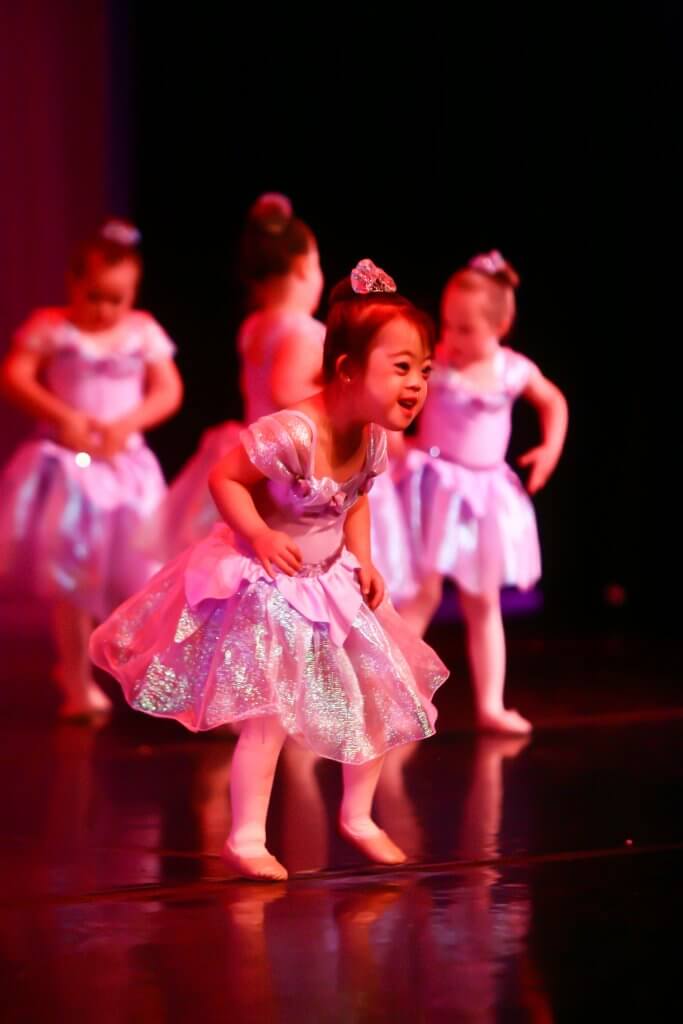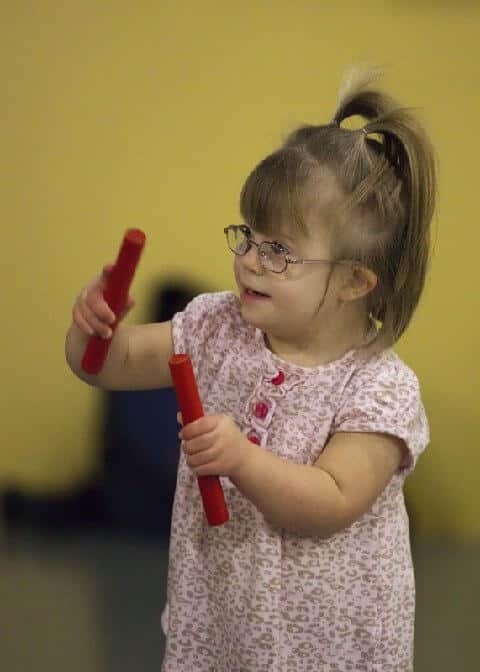
When I started the Physio Jazz program in 2009, ADC was one of the only dance studios in our area who provided opportunities for students with Down syndrome. Now, to my delight, many studios are seeing the value of inclusion & dance classes for students with developmental disabilities are common.
So why do we have dancers who travel 1 hour to come to our classes?
Here’s 5 reasons why ADC’s Physio Jazz program stands out:
- Inclusion is normal.
At Atlanta Dance Central, it’s common for our Physio Jazz students to also participate in our Youth programs. At those times, our students with developmental disabilities are just other students. Their peers & teachers do not see them as “different” or “weird”. They are just who they are. They have quirks just as their neurotypical friends do and no one treats them “special” . They are held to the same standards as the other students – to participate in class, listen, remain standing, and be respectful of others.
“You guys are the model of inclusion. Caroline is just Caroline. She's not the girl with Down syndrome.”
-Amber Chase
- We have a curriculum & set expectations for growth.
In 2009, when asked to start a “real dance class” for students with Down syndrome, I looked for a dance curriculum that I could follow. There wasn’t any . . . So we built our own, based on observation & problem solving. Our curriculum fuses dance technique with functional movements in order to improve balance & coordination. We also use a great deal of repetition in order to create habits. Students with Down syndrome have difficulty processing multiple things at once so by building habits & routines, we can by-pass that challenge.
For example, if you want to clap on the beat of the music, you have to:
1. Listen to the music & find the beat
2. Understand what the movement of a clap is

3. Calculate the speed you need to move your hands based on the distance they are from each other.
As neurotypical people, we take this for granted as our brain does that automatically.
- We aim to change lives, not just provide entertainment.
Social activities for students with developmental disabilities are wonderful but we wanted to provide more. We wanted to make a long-term difference in the quality of our students' lives by providing them with small challenges, both in the classroom and at home, that would help them grow their resilience, independence, flexibility, & emotional maturity. We teach our students how to introduce themselves to others, to look people in the eye when they are speaking, & to communicate clearly so they can be understood. We require our students to fully participate in classes & participate in our recital, just as other students in the studio do. We’re proud to say that our efforts are working!
One of our students flew on an airplane for the first time in order to dance in NYC with us! Mom said, “She never would agree to go on a place before. Now that she has, we can go anywhere!”
- We don’t “feel bad” for students with developmental disabilities.
Students with developmental disabilities are just students. We don’t feel the need to pity them or talk baby-ish to them and we teach our community to do the same. We make the most difference in our Physio Jazz students’ lives by requiring standards of behavior. We’re not mean & we’re not unrealistic. But we also aren’t pushovers. . . We know that students with developmental disabilities CAN do things & we make sure they do.
- We are curious & keep learning ourselves.
There is such little information on how to teach dance to students with Down syndrome so we keep developing and learning ourselves. In 2010, we noticed that the biggest challenge for our students was remembering the choreography. We did an experiment to see if we could increase their memory & improve their retention skills. We consulted with doctors and medical professors and they said, “No. You can't change that. It is what it is.” But we were determined to try & “see”. We started by giving the students a rule to remember.

“Rule #1 is try your best. What is rule #1?” The students couldn’t repeat it back to us – not at all. So we kept practicing, every class, for as long as it took to get the students to repeat it back to us. Overtime, the students learned to recall 5 rules & this trickled into their dance performance. They can now perform their dance by themselves onstage, remember formations, change costumes on their own, and even perform multiple dances in the same show.
When we see challenges for our students, we work to find a solution. 🙂
If you have a student with developmental disabilities & are looking for something “more”, we’d love to meet you. We provide a free assessment so we can find the perfect class for you.